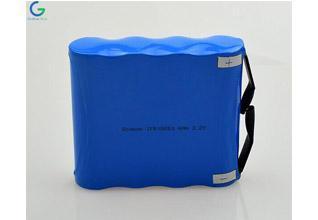What are the Factors Affecting the Low-Temperature Characteristics of Lithium Iron Phosphate Batteries?
As an Emergency Lighting Battery Supplier, share it with you.
Although compared with other rechargeable batteries, lithium iron phosphate batteries have great advantages in terms of cycle system service life and rechargeable battery multiples, but under low temperature standards, their characteristics are slightly reduced. Therefore, improving and improving the low-temperature characteristics of lithium iron phosphate batteries more reasonably improves their competitiveness.
First, the positive electrode material selected in the lithium iron phosphate battery has a relatively weak electrical conductivity of its own electronic devices, which is very prone to electrical polarization, thereby reducing the volume of the lithium battery.
LiFePO4 Battery
Second, the negative stage of the negative lithium battery is very harmful to these aspects of low-temperature battery charging, and will endanger the safety factor of the rechargeable battery.
Third, the lithium iron phosphate battery electrolyte under low temperature standards, the viscosity of the internal lithium battery electrolyte increases, thereby increasing the characteristic impedance of lithium-ion battery transfer.
Ways to improve and improve the low-temperature characteristics of lithium iron phosphate batteries
1. The three elements of positive electrode particle size, resistance and resistance, from the perspective of the positive level of lithium iron phosphate batteries, will harm the ultra-low temperature characteristics of rechargeable batteries. The low-temperature charge and discharge characteristics of lithium batteries can be improved according to the positive-level manufacturing process. Increasing the length of the axis of the plan can expand the safe passage of lithium-ion batteries, which is beneficial to increase the volume of rechargeable batteries. According to research findings, the low-temperature charge and discharge characteristics of lithium iron phosphate batteries can release 914 particles at minus 20°C, with a particle size of 100-200nm. Nanotechnology of particles can reduce the transfer path of particles, thereby improving its low-temperature charge and discharge. characteristic.
2. For lithium iron phosphate batteries that charge low-temperature batteries, the negative electrode is more harmful, and the key lies in the transformation of negative electrode particle size and negative interval. Human high-purity graphite is a battery cathode material with different layer spacing and particle size. The particle high-purity graphite layer with a large layer spacing has slightly lower characteristic impedance and positive ion transfer characteristic impedance from the perspective of antigen. Because the interval between the synthetic high-purity graphite layers is enlarged and the particle size is reduced, the low-temperature constant-current power supply battery charging has greatly improved the lithium iron phosphate battery.
3. When the temperature of the lithium battery electrolyte drops to minus 20°C or lower, the electrolyte of the lithium iron phosphate battery is prone to problems such as freezing, increased viscosity, and malignant changes in characteristics. Experiments show that the harm of organic solvents to the low temperature of rechargeable batteries varies from 70% to 90%, reaching more than a dozen points. In addition, different lithium salts are also harmful to the charging characteristics of the battery. The test found that if only the preservative is changed, the low-temperature preservative can increase the charge and discharge capacity of the rechargeable battery from 8% to 90%.
Our company has LiFePO4 Battery on sale, welcome to contact us.

评论
发表评论